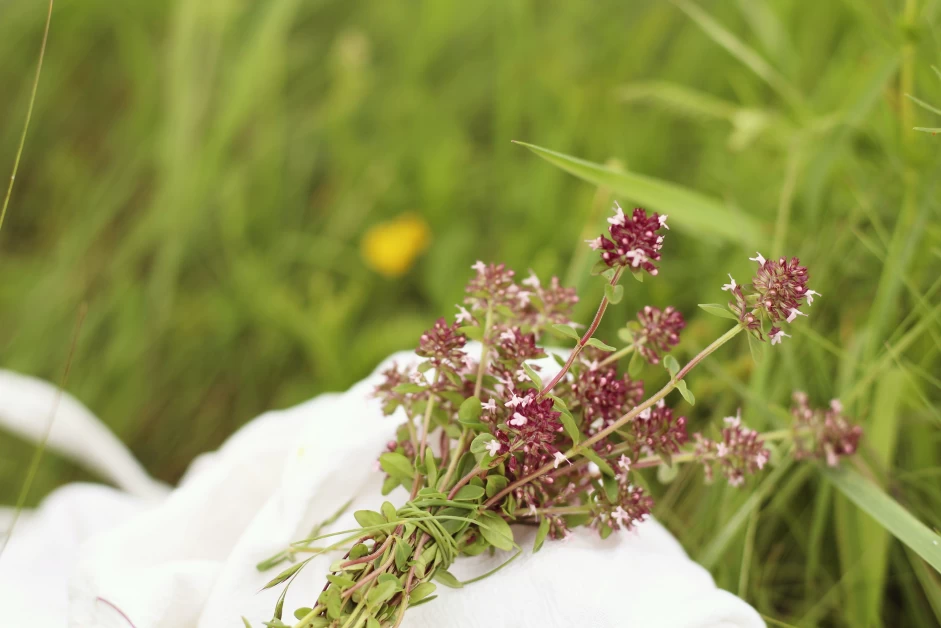Table of Contents
Having a sore throat can be a miserable experience, whether you’re the one suffering or it’s your child. The scratchy, painful feeling can make you wonder if you’re getting sick. But the good news is that there are foods and drinks that can help ease the pain and discomfort of a sore throat.
According to Dr. Sarah Nosal, a family medicine physician and a member of the board of directors of the American Academy of Family Physicians, you don’t have to suffer. There are remedies that can provide relief.
Causes of a Sore Throat
Sore throat, also known as pharyngitis, can have various causes. One of the most common causes is a viral infection. Here are some of the common causes of a sore throat:
-
COVID-19: Sore throat is a common symptom associated with COVID-19. If you have a sore throat, it’s important to take a COVID test and stay home while you’re testing positive to prevent spreading the infection to others.
-
Bacterial infection: Although less common than viral infections, a sore throat can also be caused by a bacterial infection.
-
Strep throat: This is more common in children and teens than in adults. Strep throat is caused by Group A beta-hemolytic Streptococcus bacteria and requires antibiotic treatment.
-
Allergies: Allergies can cause post-nasal drip, which can lead to a sore throat.
-
Hot or dry air: Breathing in hot or dry air can irritate the throat and cause discomfort.
-
Mononucleosis: Also known as mono, this viral infection is most common in teens and young adults.
-
Air pollution: Exposure to air pollution can irritate the throat and cause soreness.
-
Tobacco smoke: Being exposed to tobacco smoke can lead to a sore throat.
-
Flu or cold viruses: Infections from the flu or common cold viruses can cause a sore throat.
-
Sexually transmitted infections: Infections such as chlamydia or gonorrhea can cause a sore throat if they affect the throat.
-
General anesthesia: After undergoing a medical procedure that involves general anesthesia, the throat can become irritated.
While antibiotics can help treat bacterial infections, they are not effective against viruses. In the case of a viral infection, you have to let it run its course. However, there are certain foods and drinks that can help manage the symptoms of a sore throat.
Foods and Drinks to Relieve a Sore Throat
When you have a sore throat, it’s important to rest and stay hydrated. There are several foods and drinks that can help ease the pain and discomfort. Here are some options to consider:
Popsicles
Popsicles can be a special treat for both kids and adults with a sore throat. The cold feeling of a popsicle can help relieve pain and reduce inflammation.
Soup or Broth
Chicken soup has long been considered a remedy for a sore throat, and for good reason. The heat of the soup can soothe the throat and help hydrate the body. Additionally, soup and broth contain nutrients like vitamin C, which can support the immune system.
Warm Salt Water
Gargling with warm salt water is a popular home remedy for a sore throat. It works by breaking down phlegm and reducing inflammation. To make a saltwater gargle, dissolve one teaspoon of salt in a glass of warm water. Gargle with the mixture and spit it out. You can repeat this several times a day to help alleviate the discomfort.
Teas
Warm or hot tea can provide relief for a sore throat. Some teas are particularly effective, including:
-
Chamomile: Chamomile tea contains flavonoids, which can help reduce inflammation and promote healing.
-
Mint: Mint tea contains menthol, which has a cooling effect and can increase blood flow to the throat, aiding in the healing process. Menthol can also provide pain relief.
Ginger, Lemon, and Honey
Combining ginger, lemon, and honey can create a powerful remedy for a sore throat. Ginger contains a natural compound called gingerol, which has anti-inflammatory properties and can help alleviate pain. Lemons are rich in vitamin C and ascorbic acid, which can help break down mucus and clear infections. Honey can coat the throat and provide soothing relief. However, it’s important to note that honey should not be given to children under the age of one due to the risk of botulism.
Milk
Contrary to popular belief, milk does not necessarily increase phlegm production. In fact, a 2019 review found no association between milk consumption and phlegm production. Milk can provide essential nutrients like vitamin D and calcium, which are beneficial for overall health. If you enjoy milk and it doesn’t worsen your symptoms, there’s no harm in consuming it while you have a sore throat.
Overall Healthy Diet
Maintaining a healthy diet, even when you’re sick, can help your body recover more quickly. Aim to eat a variety of fruits and vegetables to ensure you’re getting essential nutrients. Foods rich in beta carotene, vitamin C, vitamin D, zinc, and probiotics can all support your immune system and aid in the healing process.
Foods and Drinks to Avoid
While there are foods and drinks that can help soothe a sore throat, there are also some that can worsen symptoms. It’s best to avoid the following when you have a sore throat:
-
Crackers or any other hard-to-swallow foods.
-
Citrus fruits (except lemon when combined with other ingredients) as their acids may irritate the throat.
-
Spicy foods, which can irritate the throat and exacerbate discomfort.
Other Ways to Relieve a Sore Throat
In addition to consuming soothing foods and drinks, there are over-the-counter medications that can provide relief. These include:
-
Non-steroidal anti-inflammatory drugs (NSAIDs) like acetaminophen and ibuprofen.
-
Sore throat lozenges: Look for lozenges with ingredients like menthol, benzocaine, or eucalyptus oil, as they can help numb the pain and increase saliva production.
-
Throat sprays: Throat sprays containing ingredients like benzocaine can also help numb the pain.
-
Decongestants: If congestion is contributing to your sore throat, decongestants can help alleviate symptoms. However, avoid decongestants if you have heart problems or high blood pressure.
-
Antihistamines: If your sore throat is due to allergies, antihistamines may provide relief.
-
Saline nasal spray: Using a saline nasal spray can moisturize and soothe your nasal passages, reducing post-nasal drip and alleviating throat discomfort.
Always read labels and consult a healthcare professional before giving over-the-counter medications to children, to ensure they are safe and appropriate for their age.
When to Seek Medical Attention
In most cases, a sore throat will resolve on its own within a few days. However, there are certain situations where it’s important to seek medical attention. You should see a healthcare provider if:
-
You experience trouble breathing or shortness of breath. Difficulty breathing should always be evaluated promptly.
-
Your sore throat pain does not improve with over-the-counter pain relievers or persists for more than a couple of days. This may indicate an underlying condition that requires further investigation.
-
You have severe trouble swallowing or drooling. These symptoms may suggest the presence of an abscess.
-
You notice a high-pitched sound when breathing in (stridor). This could indicate an obstruction in the airway.
-
You have a stiff neck or are unable to bend your neck. These symptoms can be a sign of an abscess or other serious complications.
-
The swelling on one side of your throat worsens. This could be a sign of an abscess or a severe infection.
-
Your voice quality changes, making it sound like you have a hot potato in your mouth. This is another sign of a potential abscess or other complications.
-
In children and teens, a sore throat is accompanied by a fever higher than 100.4°F (38°C), swollen lymph nodes, and no cough. These symptoms may indicate strep throat.
If you’re unsure whether to seek medical attention for a sore throat, it’s best to call your healthcare provider for guidance.
Final Reminders for Dealing with a Sore Throat
Here are some final tips to keep in mind when dealing with a sore throat:
-
Wash your hands frequently to prevent the spread of germs.
-
Avoid sharing food, drinks, and utensils with others, especially when you’re sick.
-
Use a tissue to cover your mouth and nose when coughing or sneezing, and wash your hands afterward.
-
Clean frequently touched items, such as remote controls, phones, and keyboards, to prevent the spread of germs.
-
Get plenty of rest to allow your body to recover.
-
Avoid smoking, and ask others around you not to smoke when you’re sick.
Remember, while certain foods and drinks can provide relief for a sore throat, it’s important to seek medical attention if your symptoms worsen or persist. Take care of yourself and seek professional advice when needed.



